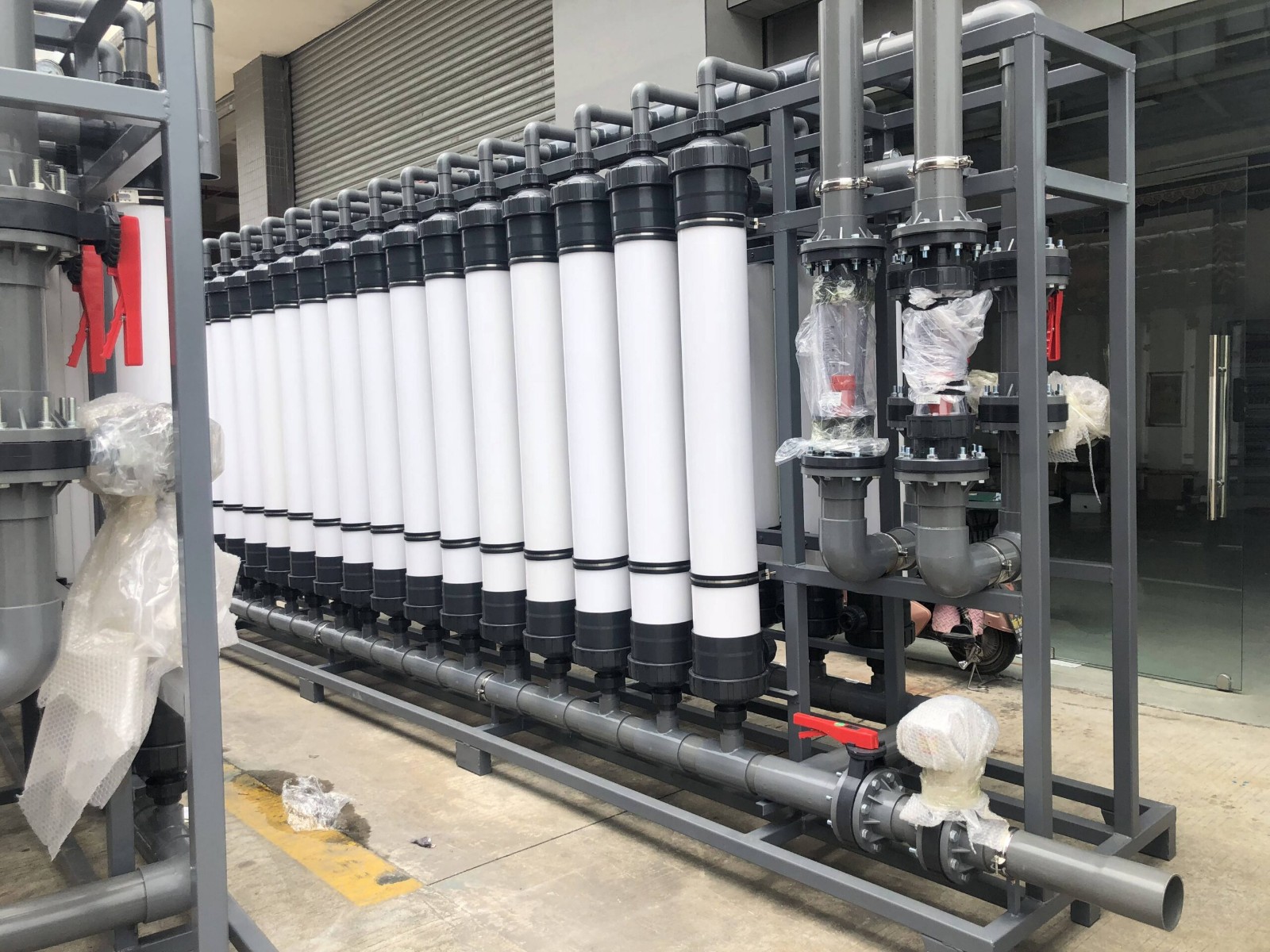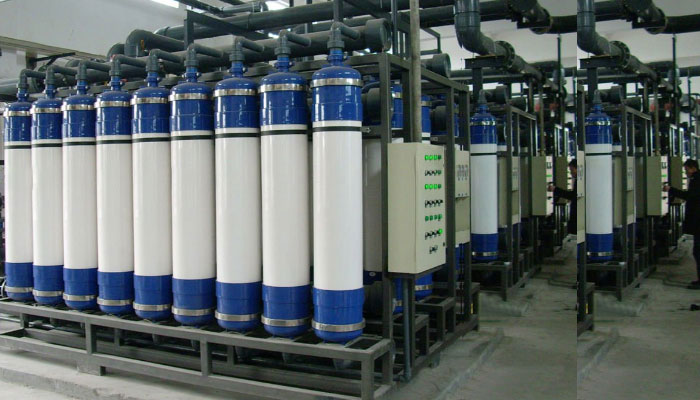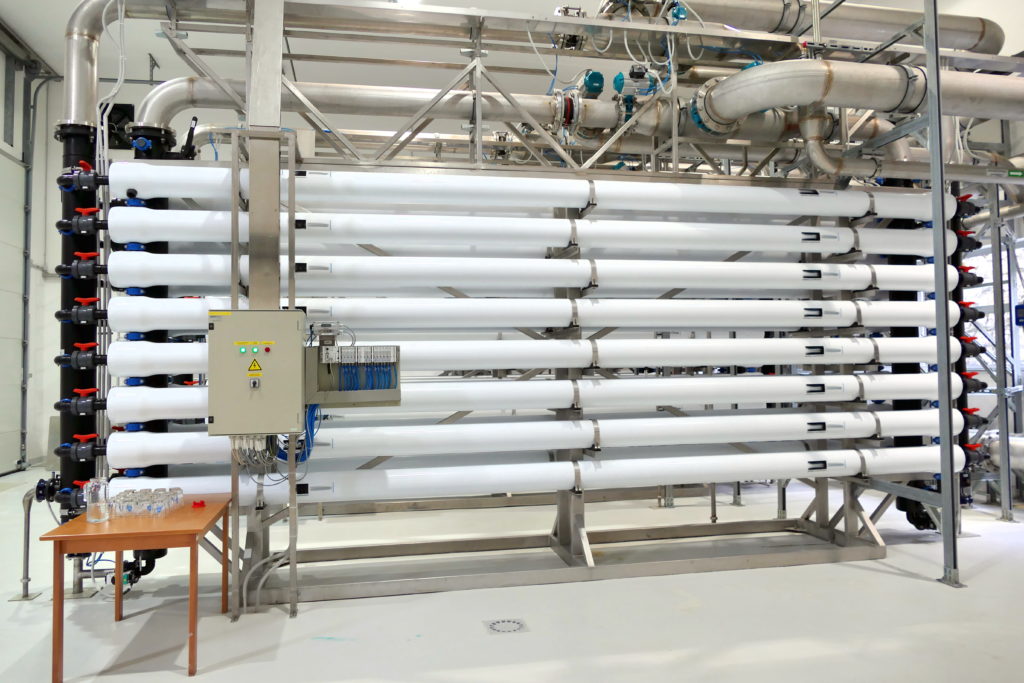What is the difference between filtration and ultrafiltration?
In the field of water treatment, filtration and ultrafiltration are two common methods. Although they have similar functions, there are some differences in principles and applications. This article will take an in-depth look at the differences between filtration and ultrafiltration and analyze their applications, advantages and disadvantages in water treatment.
The difference between filtration and ultrafiltration
Filtration and ultrafiltration are two different water treatment methods, and they have obvious differences in principles and applications.
First, filtration is a method of separation using filter media. The filter physically removes dirt and sediment particles from the fluid, and its filter media can be quartz sand, activated carbon, ceramics, etc. Filters are typically able to remove particles as small as about 1 micron, but are unable to remove some dissolved chemicals.
In contrast, ultrafiltration is a filtration method based on hollow fiber membranes. Ultrafiltration membranes have very tiny pore sizes, typically between 0.01 and 0.1 microns, so ultrafiltration blocks smaller particles and solids. Although ultrafiltration is also a physical filtration method, it can filter out smaller particles and microorganisms, and even viruses and most bacteria.
In addition, ultrafiltration requires higher pressure to achieve filtration effects. Since the pore size of the ultrafiltration membrane is very small, high pressure is required to make water pass through the membrane pores to achieve filtration purposes. This makes ultrafiltration popular in the commercial drinking water world because it provides cleaner, purer water quality.

What is the difference between filtration and ultrafiltration in industrial applications?
Characteristics of filtration in industrial applications
Filtration has some unique characteristics in industrial applications. First of all, due to the diverse filter media of the filter, filter media of different materials can be selected according to different needs, making it suitable for different water treatment scenarios. Secondly, filters usually have large filtration area and processing capacity, which can meet the needs of large amounts of water treatment in industrial production. In addition, filters have relatively low operating costs and are easy to maintain, making them widely used in industrial applications.
Characteristics of ultrafiltration in industrial applications
Compared with filtration, ultrafiltration also has its own unique characteristics in industrial applications. First of all, ultrafiltration can provide higher filtration precision and purer water quality, so it is widely used in industrial fields with high water quality requirements. Secondly, ultrafiltration equipment usually has large processing capacity and long service life, and can meet the continuous and stable water treatment needs in industrial production. In addition, due to the microporous structure of the ultrafiltration membrane, ultrafiltration equipment also has strong anti-pollution capabilities and can maintain stable filtration effects after long-term operation.

What are the selection criteria for filtration and ultrafiltration in household water treatment?
Selection criteria in household water treatment
In home water treatment, there are some key factors to consider when selecting filtration or ultrafiltration equipment. First, you need to consider your home’s water quality situation and water treatment needs. If the water quality at home is poor and contains more suspended solids and microorganisms, you can consider choosing ultrafiltration equipment to ensure the safety and health of household water. If the water quality in your home is relatively good and only some impurities and odors need to be removed, you can choose ordinary filtration equipment to meet your daily water needs.
Secondly, there are family budget and space constraints to consider. Ultrafiltration equipment is usually more expensive, takes up more space, and requires higher operating and maintenance costs. Therefore, if your family has a limited budget or limited space, you can consider choosing a regular filtration device that is less expensive and smaller.
Finally, there are household water quality requirements and preferences that need to be considered. Some families have higher requirements for water quality and want their drinking water to be purer and cleaner. In this case, they can choose ultrafiltration equipment to achieve higher filtration effects. Some families have lower water quality requirements and only need to remove some impurities and odors, so ordinary filtering equipment can meet the needs.

How do filtration and ultrafiltration processes affect the efficiency and quality of water treatment?
The impact of filtration processes on water treatment
The filtration process can effectively remove suspended solids and solid particles in the water and improve the transparency and cleanliness of the water. Through reasonable selection of filter media and control of operating parameters, treatment of different water qualities can be achieved to ensure the efficiency of water treatment and the stability of water quality. However, the filtration process cannot remove dissolved substances in water and has limited effect on improving water quality.
The impact of ultrafiltration process on water treatment
The ultrafiltration process can achieve efficient filtration of tiny particles and microorganisms in water, improving water purity and safety. Ultrafiltration membranes have a microporous structure that effectively blocks contaminants in the water but allows water molecules and dissolved chemicals to pass through. This allows the ultrafiltration process to not only improve the efficiency of water treatment, but also retain beneficial components in the water and improve the nutrition and taste of the water.




